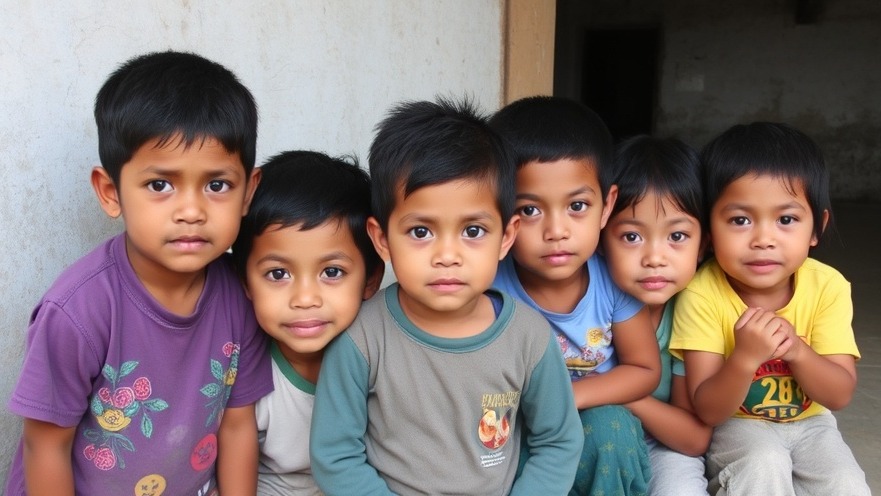
A Legal Lifeline for Vulnerable Migrant Children in Texas
In a dramatic turn of events at Harlingen's Valley International Airport, a federal judge intervened during a tense moment when about 50 Guatemalan children were on the verge of being deported back to their home country. These children, many of whom arrived alone at the U.S.-Mexico border, found themselves caught in a chaotic situation this past Sunday night, sparking a renewed debate surrounding U.S. immigration enforcement and the protections afforded to minors.
The Judge's Ruling: A Temporary Block on Deportations
U.S. District Judge Sparkle L. Sooknanan's decisive ruling halted the deportation flights, indicating that these children would remain in the U.S. for at least the next two weeks while legal challenges unfold. "I do not want there to be any ambiguity," she asserted, emphasizing the potential risks these children faced if they were returned to Guatemala. Advocates contend that the government’s rush to send these minors back without due process stands in violation of established legal protections meant to shield vulnerable populations.
A System Under Strain: The Impacts of U.S. Immigration Policy
This incident highlights the ongoing tensions within U.S. immigration policy, particularly under the Trump administration's heightened enforcement strategies. Just as in past scenarios involving other immigrant groups, such as the attempted deportation of Venezuelans to El Salvador, the current situation raises critical questions regarding due process and moral responsibility. Many believe the administration's claims of intention to reunite these children with family in Guatemala mask deeper systemic issues, including neglect of their safety and well-being.
The Children’s Voices: A Glimpse into Their Reality
For many of these children, the prospect of returning to Guatemala evokes fear rooted in trauma. One girl, an honors student who had been living in a protective shelter in New York, candidly expressed her anxiety over potential deportation. "I love living in the U.S. and am deeply afraid of being deported," she noted—a sentiment echoed by several court filings detailing the alarming conditions left behind in their home country, which include threats and abuse.
Public Response: Advocacy Amidst Chaos
Kica Matos, president of the National Immigration Law Center representing the children, vehemently criticized the government’s tactics, referring to the actions taken on a holiday weekend as a shocking breach of moral conduct. "The idea that fragile children would be thrust into such uncertainty under the cover of night is alarming,” she stated, capturing the mounting tension and fear among both advocates and the families of these children.
Future Implications: The Legal Landscape of U.S. Immigration
The ruling to stop the deportations reflects a significant moment in U.S. immigration law, especially as these children claim their right to safety and legal representation. Moving forward, the court's decision may set a precedent for how similar cases involving unaccompanied minors are handled, potentially influencing broader discussions on immigration reform and child welfare protections.
Conclusion: The Dilemma of Immigration Policy vs. Child Welfare
The unfolding drama of these Guatemalan children in Texas serves as a poignant reminder of the complexities inherent in U.S. immigration policies. As the nation grapples with these challenging issues, it is essential to ensure that vulnerable individuals are afforded the legal protections they deserve. As citizens, it is our responsibility to advocate for humane treatment and support those seeking refuge from their harrowing circumstances.
 Add Element
Add Element  Add Row
Add Row 



Write A Comment